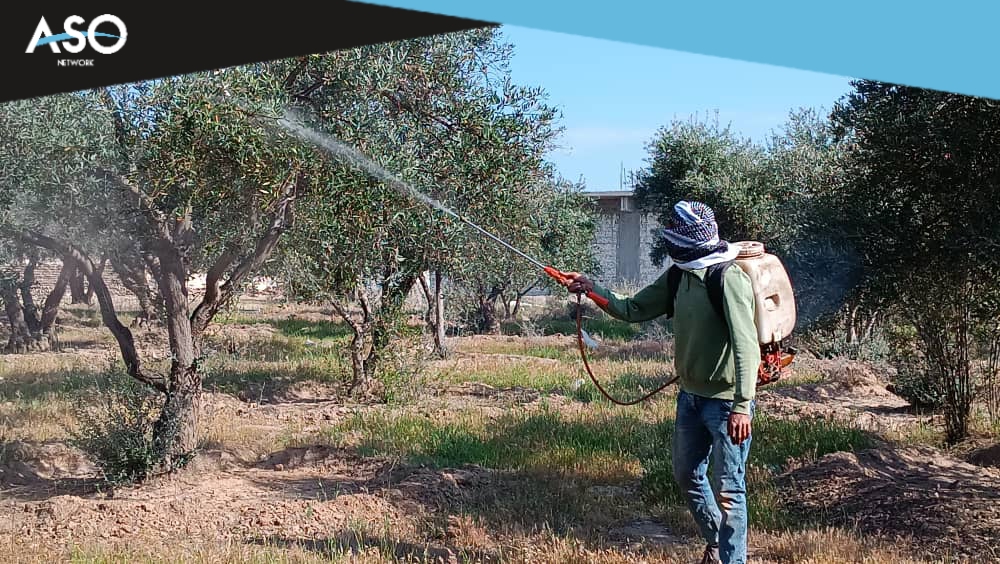News
Al-Tabqa farmers spray olive fields with pesticides to combat the psyllid insect before the flowering season

Farmers in Tabqa area began to combat the cotton psylla insect, which spread widely in olive fields at the beginning of the flowering season, as it led to a significant reduction in the amount of season production due to this insect feeding on olive flowers and fruits.
Anwar Al-Faraj, a farmer from the town of AL-Mansoura in the eastern countryside of Tabqa, confirmed to ASO News Network that the insect has spread widely in his field of about 200 olive trees and that he has begun the process of combating it by using insecticides suitable for this insect to reduce its damage to the flowering season and maintain the amount of production.
Anwar adds that last season, the psylla insect led to a decrease in the production of his field by more than half due to its large spread last year and his failure to combat it.
He also pointed out the absence of fertilizer support and the delay in fuel distribution, which forced some people to install solar panels to irrigate their fields.

A farmer prepares insecticides to spray his trees
Meanwhile, Osama Al-Khalaf, administrator of the Plant Protection Office at the Agriculture and Irrigation Authority in Tabqa Province, confirmed to our network that the insect causes great damage because of its feeding on flowers and its secretion of a waxy substance, which leads to the drying of the flowers and the fall of the fruits, indicating that last season its production decreased to about 60 percent. Due to psyllid infestation.
The prevention official attributed the spread of the insect to the climate factor, as it spreads in humid environments, and the current year is witnessing a wet season due to heavy rainfalls, which raises fears of its wider spread.
The official of the Plant Protection Office stressed the need for farmers to combat it with the pesticide (pyrethroid), which is highly effective in eliminating the insect, including also the pesticide Decis or the pesticide Vacyber Methrin.
The area planted with olive trees within Tabqa District is 106 thousand dunams, and the number of trees is approximately two million trees, according to statistics from the Agriculture and Irrigation Authority in Tabqa District.
